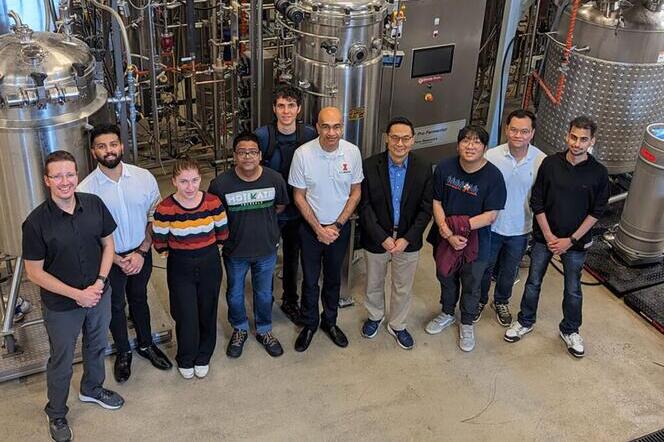New pipeline makes valuable organic acid from plants — saving money and emissions

In a breakthrough for environmentally friendly chemical production, researchers at the Center for Advanced Bioenergy and Bioproducts Innovation (CABBI) have developed an economical way to make succinic acid, an important industrial chemical, from sugarcane.
The team of University of Illinois and Princeton University researchers created a cost-effective, end-to-end pipeline for this valuable organic acid by engineering a tough, acid-tolerant yeast as the fermenting agent, avoiding costly steps in downstream processing. Succinic acid is a widely used additive for food and beverages and has diverse applications in agricultural and pharmaceutical products.
This same pipeline can be used to produce other industrially important organic acids targeted by CABBI in its work to develop sustainable biofuels and biochemicals from crops, said co-author Huimin Zhao, CABBI’s Conversion Theme Leader and Professor of Chemical and Biomolecular Engineering (ChBE) at Illinois. To reduce reliance on fossil fuels, Conversion researchers are deploying microbes to convert plant biomass into chemicals used in everyday products as an alternative to conventional petroleum-based production.
“This will serve as a blueprint for all the other metabolic engineering products in CABBI,” said Zhao, one of several CABBI principal investigators on the project. Other PIs included Vijay Singh, CABBI’s Deputy Director for Science & Technology, Distinguished and Founder Professor of Agricultural and Biological Engineering (ABE), and Executive Director of the Integrated Bioprocessing Research Laboratory (IBRL) in the College of Agricultural, Consumer and Environmental Sciences (ACES) at Illinois; Jeremy Guest, Associate Professor of Civil & Environmental Engineering (CEE) at Illinois and part of CABBI’s Sustainability Theme; and Conversion Deputy Theme Leader Joshua Rabinowitz, Professor of Chemistry and the Lewis-Sigler Institute for Integrative Genomics at Princeton.